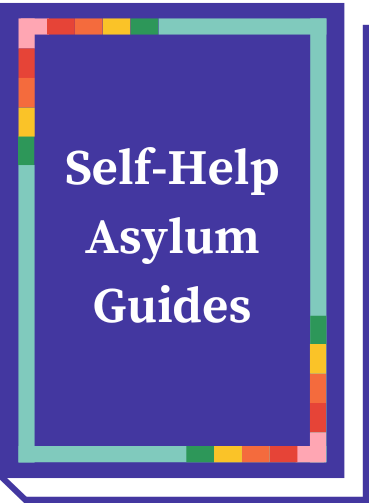Preface & Acknowledgements
The information contained herein is for reference only and may not be up to date. It does not constitute legal advice. You should always consult an attorney regarding your matter.
These materials represent the third edition of the Preparing LGBTQ and HIV Asylum, Withholding and CAT Claims which is a collaborative effort between Immigration Equality in New York and the Midwest Immigrant and Human Rights Center (MIHRC) in Chicago.
The original Preparing Sexual Orientation-Based Asylum Claims: A Handbook for Advocates and Asylum Seekers was first published in 1997, when sexual orientation-based claims were still relatively rare. An updated version was published in 2000.
The first two versions of the Manual were authored by Heather McClure of the Midwest Human Rights Partnership for Sexual Orientation, a project of MIHRC; Christopher Nugent, a Board member of Immigration Equality (formerly known as the Lesbian and Gay Immigration Rights Task Force, LGIRTF); and Lavi Soloway, one of the founders of Immigration Equality and a pioneer in the work of LGBT and HIV asylum claims. Without the tireless work and vision of these three individuals, this Manual would never have been written.
We also wish to acknowledge the contributions to the prior two editions by the following individuals: Reverend Sid Mohn, Betsy Leonard, Amanda Adams, Noemi Masliah, Roger Doughty, Amy Gottlieb, Amanda Orendain, Diego Bonesatti, Suzanne Goldberg, Pradeep Singla, Heather Betz, David Cunningham, and Simone Hill.
The current edition of the Manual is primarily the work of Victoria Neilson, Legal Director of Immigration Equality, Elissa Steglich, Managing Attorney of MIHRC, and former Immigration Equality intern Erin Harrist, Columbia University law student, J.D. anticipated 2007.
Large sections of this manual pertaining generally to the law and procedure of asylum, withholding and CAT claims, have been taken from MIHRC’s Basic Procedural Manual For Asylum Representation Affirmatively and In Removal Proceedings. Copyright © 2005, Heartland Alliance’s Midwest Immigrant & Human Rights Center (MIHRC). Reprinted with permission from Heartland Alliance’s Midwest Immigrant & Human Rights Center.
Every effort has been made to provide accurate and up-to-date information in this Manual. If you see anything which you believe is inaccurate, please contact the authors at Immigration Equality or MIHRC to bring the error to our attention. Also, please bear in mind that immigration law is constantly changing. Therefore, you should always consult the Immigration and Nationality Act, Code of Federal Regulations, and Board of Immigration Appeals and Federal Court decisions rather than relying solely on the information in this Manual. Moreover, different attorneys may employ different strategies in asylum cases, in many instances the information contained herein as to best practices in asylum cases is the joint opinion of the authors, but reasonable minds may disagree about strategy choices.
We have changed the format significantly from prior versions of the Manual, believing that it is better to direct the content specifically at attorneys and accredited representatives rather than including text directed towards asylum seekers themselves. As enforcement and removal increasingly become the goals of the Department of Homeland Security, we do not wish to encourage any asylum seeker to go forward without the assistance of a qualified attorney or accredited representative. To that end, both MIHRC and Immigration Equality run pro bono asylum projects, matching volunteer attorneys to meritorious asylum claims. The stakes are high in asylum cases – often they are literally matters of life and death for the asylum seekers. Government statistics have shown that asylum seekers with competent counsel are many times more likely to succeed than those who are unrepresented.
We urge you to consider taking on a pro bono asylum case. As we write, the U.S. government continues to refuse recognition of long-term same sex partnerships, and even lawful marriages between same spouses. Likewise, it remains unclear under what circumstances, if any, the U.S. government will recognize marriages where one spouse is transgender. And the United States continues to enforce one of the world’s harshest immigration policies against people living with HIV. For LGBT and HIV-positive individuals who have fled persecution, or who fear returning to a country where they will not be free to express their sexuality or gender identity, or to receive life-saving medication, asylum may be their only hope to begin a new life in the United States.
— Victoria Neilson
The information contained herein is for reference only and may not be up to date. It does not constitute legal advice. You should always consult an attorney regarding your matter.
This handbook is intended for use by pro bono attorneys and immigration attorneys working on LGBTQ/HIV asylum cases.
Detention Hotline
If you are in detention, call:
(917) 654-9696 | M-W 9:30 - 5:30pm & Th 1:00 - 5:30pmCalls from people outside of detention will not be accepted.
